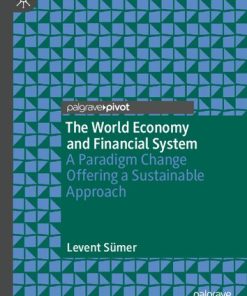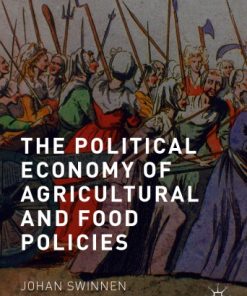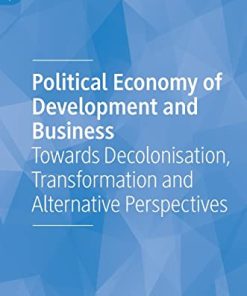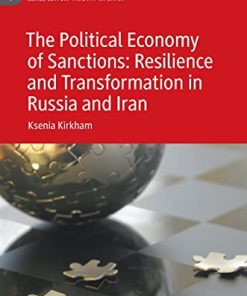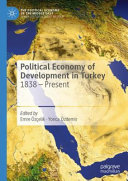The Political Economy of Food System Transformation: Pathways to Progress in a Polarized World 1st Edition Resnick
$50.00 Original price was: $50.00.$25.00Current price is: $25.00.
The Political Economy of Food System Transformation: Pathways to Progress in a Polarized World 1st Edition – Ebook Instant Download/Delivery ISBN(s): 9780198882121,0198882122, 9780198882244, 0198882246
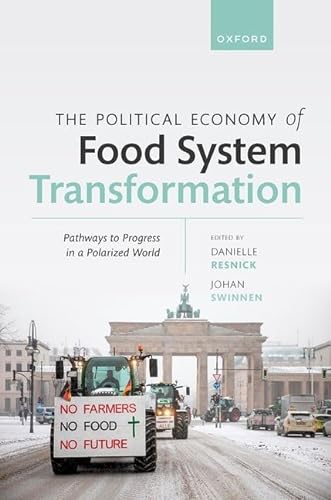
Product details:
- ISBN-10: 0198882246
- ISBN-13: 9780198882244
- Author: Danielle Resnick, Johan Swinnen
This is an open access title available under the terms of a CC BY-NC 4.0 International licence. It is free to read at Oxford Academic and offered as a free PDF download from OUP and selected open access locations. The current structure of the global food system is increasingly recognized as unsustainable. In addition to the environmental impacts of agricultural production, unequal patterns of food access and availability are contributing to non-communicable diseases in middle- and high-income countries and inadequate caloric intake and dietary diversity among the world’s poorest. To this end, there have been a growing number of academic and policy initiatives aimed at advancing food system transformation, including the 2021 UN Food Systems Summit, the Sustainable Development Goals (SDGs), and several UN Climate conferences. Yet, the policy pathways for achieving a transformed food system are highly contested, and the enabling conditions for implementation are frequently absent. Furthermore, a broad range of polarizing factors affect decisions over the food system at domestic and international levels – from debates over values and (mis)information, to concerns over food self-sufficiency, corporate influence, and human rights. This volume explicitly analyses the political economy dynamics of food system transformation with contributors who span several disciplines, including economics, ecology, geography, nutrition, political science, and public policy. The chapters collectively address the range of interests, institutions, and power in the food system, the diversity of coalitions that form around food policy issues and the tactics they employ, the ways in which policies can be designed and sequenced to overcome opposition to reform, and processes of policy adaptation and learning. Drawing on original surveys, interviews, empirical modelling, and case studies from China, the European Union, Germany, Mexico, South Asia, sub-Saharan Africa, and the United States, the book touches on issues as wide ranging as repurposing agricultural subsidies, agricultural trade, biotechnology innovations, red meat consumption, sugar-sweetened beverage taxes, and much more.
Table contents:
1. Introduction: Political Economy of Food System Transformation
2. Facts, Interests, and Values: Identifying Points of Convergence and Divergence for Food Systems
3. The Political Economy of Reforming Agricultural Support Policies
4. From Re-instrumenting to Re-purposing Farm Support Policies
5. Policy Coalitions in Food Systems Transformation
6. Government Response to Ultra-Processed and Sugar Beverages Industries in Developing Nations: The Need to Build Coalitions across Policy Sectors
7. Ultra-Processed Food Environments: Aligning Policy Beliefs from the State, Market, and Civil Society
8. Asymmetric Power in Global Food System Advocacy
9. The Political Economy of Bundling Socio-Technical Innovations to Transform Agri-Food Systems
9. The Political Economy of Bundling Socio-Technical Innovations to Transform Agri-Food Systems
10. Sustainable Food and Farming: When Public Perceptions Depart from Science
11. Enabling Positive Tipping Points in Public Support for Food System Transformation: The Case of Meat Consumption
12. Urban Food Systems Governance in Africa: Toward a Realistic Model for Transformation
13. The Political Economy of Food System Transformation in the European Union
14. Tracking Progress and Generating Accountability for Global Food System Commitments
15. Conclusions
People also search:
The Political Economy of Food System Transformation
How did economics evolve into a political economy
What is the food system transformation
political economy of change
role of the political economy
You may also like…
Politics & Philosophy - Politics
The Political Economy of Geoeconomics: Europe in a Changing World 1st edition
Politics & Philosophy - Government & Politics
Business & Economics - Markets
The World Economy and Financial System 1st edition by Levent Sümer 3031275302 9783031275302
Politics & Philosophy - Government & Politics
Uncategorized
Politics & Philosophy - Politics
Politics & Philosophy - Others
Politics & Philosophy - Politics
The Political Economy of Sanctions: Resilience and Transformation in Russia and Iran Ksenia Kirkham
Business & Economics - Others






